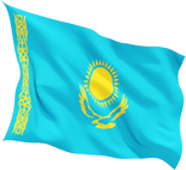The International Non-Governmental Organization “Transparency International” announced the results of its Corruption Perceptions Index for 2022. Our country with 31 points took 126th place out of 180 countries and, after increasing its score by three, improved its position by 14 lines (in 2021 – 140th place). Uzbekistan, as a state that has been showing growth in this index over the last six years, is ranked among the countries in Eastern Europe and the Central Asian region that have been systematically implementing anti-corruption reforms. This growth is a positive outcome of the anti-corruption activities.
However, in order to improve our position in the rating and to eliminate corruption in society in general, it is necessary to accelerate the work on streamlining lobbyism, monopoly and conflict of interests, as well as eliminating such vices as nepotism, illicit enrichment, abuse of power and favoritism.
What is the opinion of the experts?
Grigory Mashanov, co-author of the report assessing the implementation of the UN Convention against Corruption in Uzbekistan, notes “Uzbekistan’s leadership has been consistently pursuing anti-corruption reforms. Although there are some challenges, the government has implemented a number of measures to digitize public services, improve permission procedures as well as simplify rules and procedures in fighting the domestic corruption.
Today, no state is corruption-free. Unless it is tackled, it will inevitably lead to severe consequences. The UN Development Programme has stressed that the world economy loses $2,6 trillion a year to this phenomenon, and only a collective fight against this evil, which has become the most dangerous enemy of society, can have an effect.
The situation of corruption in the world requires states to wage an irreconcilable fight against this evil. This problem and its consequences lead to inefficiency and economic decline. Therefore, strengthening the judicial, prosecutorial and law enforcement capacities in the fight against corruption, improving the legal mechanisms of the sphere, and active cooperation with national human rights organizations and civil society institutions are priorities.
The corruption is the enemy of the market economy, a ruthless obstacle to the development of business, investment and bilateral and multilateral cooperation between states. It seems that the reason for the decline of foreign investment in countries with high levels of corruption is also to be found in this dangerous vice. The problem is deepening, the scope and scale of this “disease” is also expanding, the level of corruption is increasing, and there is an acute question of “what should be done?
In recent years, Uzbekistan has elevated the fight against corruption to the level of state policy. The Index of Openness has been introduced to assess the efficiency and effectiveness of the transparency of the work of state bodies and organizations. A considerable attention is also being paid to improving the legal framework in this area. The drafts of 24 laws and regulations have been developed to enhance the effectiveness of the anti-corruption fight. The Law of the Republic of Uzbekistan “On Combating Corruption” has been adopted. At the initiative of the President, the e-government system is widely used.
Its implementation and widespread use of its capabilities is the most efficient instrument. Such countries as the USA, Great Britain, Sweden, Singapore, Norway, South Korea have achieved great results in the fight against corruption precisely by creating such a system. From the experience of these countries, it is clear that the implementation of such a system will be of great help in ensuring transparency in the public administration.
At the same time, the effectiveness of the fight against corruption depends on the growth of legal awareness and legal culture.
The Chapter 3 of the Law of the Republic of Uzbekistan “On Combating Corruption” is entitled “Raising Legal Awareness and Legal Culture in the Sphere of Combating Corruption”. It identifies the following priorities: increasing the legal awareness and legal culture of the population, forming an intolerant attitude to corruption in society, improving the legal literacy of the staff of State bodies and other organizations, as well as training and education in the sphere of combating corruption in educational institutions.
Recently, the positive changes in the fight against corruption have taken place in the system of higher education. Such measures as the organization of enrolment to the higher educational institutions in an atmosphere of transparency and fairness since 2018, the transition of the educational process to a credit-module system, and an increase in the salaries of professors and teachers have become important factors therein.
As a teacher and scientist who has served in the higher education system for many years, I would like to state that the importance of education in the fight against corruption is closely linked to the need for the younger generation to take a civic stand against this evil. We must convey the message that the corruption and bribery are the worst evils in society. Today, there is a notion in the minds of young people that the bribery and extortion cannot be defeated in society. Unless we change this, unless we carry out widespread educational and awareness-raising work that the corruption leads to the collapse of society and the backwardness of the economy, it will be difficult to achieve the goal.
We have an obligation to convey the message to young people that the salvation lies in science and education, which call for good deeds and protect them from wicked deeds. It is also necessary to identify measures for quality education at all stages in the social sciences that contribute to the formation of the mindset of young people. This approach is one of the important factors in the fight against corruption. It is the social sciences that are the best means of mental and spiritual upbringing of young people.
Gafurjan Mukhamedov,
Professor, Honored Scientist of the Republic of Uzbekistan.











